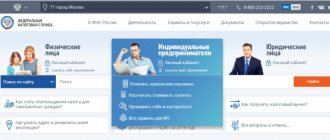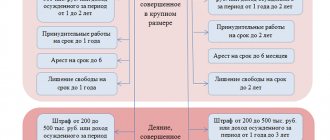We remind you that in addition to this newsletter, our team runs another tax newsletter, previously known as “How to avoid paying extra taxes and money?” Why earlier? Because we thought that a more accurate title for the newsletter would be “How to avoid paying extra taxes?” and renamed it.
In the newsletter “How to avoid paying extra taxes?” We consider a wide variety of tax disputes in a situational form, from which taxpayers emerge victorious. All issues are based on judicial and arbitration practice. If any of you have not subscribed, you can do so right now (provided that you are online). The newsletter home page is here.
The practice of tax control over the expenses of individuals quite often diverges from the current legislation as a result of incorrect interpretation of its provisions by representatives of tax authorities.
The author’s goal is to provide all possible assistance to taxpayers in explaining the legal situation and protecting their interests when tax authorities carry out control procedures.
The legislative framework
Legal regulation of tax control over the compliance of citizens' expenses with their income is carried out by legal acts, an exhaustive list of which is presented by:
- subp. 10 p. 1 art. 31, art. 86.1–86.3, 129.1 part 1 of the Tax Code of the Russian Federation;
- Order of the Ministry of Taxes of the Russian Federation dated December 2, 1999 No. AP-3-08/379 “On approval of the forms of documents required when conducting tax control over the expenses of an individual”;
- Order of the Ministry of Taxes of the Russian Federation dated June 13, 2000 No. BG-3-08/225 “On the repeal of the Order of the Ministry of Taxes and Duties of the Russian Federation dated December 22, 1999 No. AP-3-08/408”;
- Letter of the Ministry of Taxes and Taxes of the Russian Federation dated September 28, 2001 No. ШС-6-14/734 “On liability for violations of tax legislation.”
Art. 86.1-86.3 Part 1 of the Tax Code, establishing the need for tax control over the expenses of individuals, came into force on January 1, 2000 and remain unchanged to this day.
At the same time, Federal Law No. 116-FZ of July 20, 1998 was adopted, which differed significantly from the current norms of the Tax Code of the Russian Federation. It was supposed to come into force 1.5 years after its official publication, i.e. 01/25/00. However, this did not happen. However, this Law was so widely covered by the media and was so unexpectedly and quietly repealed that among taxpayers, and also regulatory services, to this day there is a misconception about the mechanism for monitoring the compliance of citizens' expenses with their income, which needs adjustments.
Reference
The Federal Law of July 20, 1998 No. 116-FZ “On state control over the compliance of large consumption expenditures with the income actually received by individuals” differed from the current rules:
- a higher fine for failure to submit a special declaration (if a delay is up to 90 calendar days - up to 100 minimum wages, over 90 calendar days - up to 1000 minimum wages), while fines were subject to collection exclusively in court;
- a wider list of types of property controlled by tax authorities;
- the introduction of a minimum level for the cost of controlled property: 1000 minimum wages - for the cost of 1 object and 3000 minimum wages - for the total cost of several objects acquired during the year (thus, control was provided only for large expenses);
- the procedure for declaring the property of an individual, which could be a source of costs for the acquisition of controlled objects (cash savings could not be indicated in the declaration of property subject to transfer to a notary for storage in an amount exceeding 1000 minimum wages.
BUDGETING AND SYSTEM FOR PROTECTING THE COMPANY FROM EXCEEDING THE BUDGET
The budgeting system requires effective planning, which cannot be accomplished without proper control. It makes no sense to form budgets that are not executed, and to monitor their execution to ensure there are no excesses, it is necessary to develop an entire protection system.
The main positions of the system for protecting against budget overruns:
- clear planning. Planning is the main stage of the entire system, since the final result depends on the quality of the forecast of all receipts and expenditures of funds (whether there will be excesses or not);
- control over budget execution not in fact, but in the process (for example, creating a system of requests for payment, tracking allowable balances for each cost item, etc.);
- monitoring the execution of contracts and obligations of the company, accounts payable and receivable.
The main condition for the implementation of any plan without overspending is its correctness . At first glance, there is nothing complicated about this. However, practice shows that even on the basis of reliable information, drawing up a plan as close to reality as possible is not so easy.
One of the budgets that needs to be monitored is the Cash Flow Budget ( CFB ). If it is not met, the remaining budgets will automatically not be executed. Given this circumstance, BDDS is given special attention in the budgeting system.
The cash flow budget is a plan for the receipt and expenditure of funds, highlighting their balances at the beginning and end of the analyzed period .
The cash balance at the beginning of the period is determined based on actual accounting data (accounts 50, 51, 52, etc.). To determine the balance at the end of the period, all expenses are subtracted from cash receipts and the balance at the beginning of the period is added.
The most difficult thing is to correctly plan the receipt and expenditure of funds. The cash flow planning process depends on:
- sales plan;
- contracts concluded or planned for conclusion for the supply of products (performance of work, provision of services).
In order to organize maximum control over the state of the company’s cash flows, it is necessary to create budgets separately for each structural unit or financial responsibility center ( FRC ).
What acquisitions are subject to control?
In accordance with paragraph 2 of Art. 86.1 of Part 1 of the Tax Code, property, the acquisition costs of which are controlled by the tax authorities, currently include:
- real estate, with the exception of perennial plantings;
- mechanical vehicles not related to real estate;
- shares of open joint-stock companies, state and municipal securities, as well as savings certificates;
- cultural values;
- gold bullion
It should be noted that the minimum value of property, the costs of which are subject to control, has not been established. Therefore, any expenses, regardless of the amount, are subject to tax control if the property specified in the list is purchased.
This rule applies despite the fact that in subparagraph 10 of paragraph 1 of Art. 31 of the Tax Code states that tax authorities have the right to “monitor the compliance of large expenses of individuals with their income.” Clause 1 Art. 86.1 of the Tax Code also establishes that “the purpose of tax control over the expenses of an individual is to establish the correspondence of large expenses of an individual to his income.”
According to the tax authorities, if expenses are aimed at purchasing property listed in clause 2 of Art. 86.1. NK, then this is already enough to consider them as large. But this logic, although aimed at correcting an obvious shortcoming in the legislation, is not sufficiently substantiated. To eliminate contradictions, it is necessary to exclude the term “large” from the text of the Tax Code on expenses subject to tax control. This will eliminate the misconception of many taxpayers that only large expenses are controlled - those exceeding a certain economically justified monetary amount.
Let me give you an example:
For the year, the individual entrepreneur M.I. Kroshkin, working on the simplified tax system of 15%, had a total income for the year of 2,650,000 rubles, expenses amounted to 2,890,000 rubles. That is, expenses exceeded income. It would be logical to assume that at the end of the year, IP Kroshkin M.I. does not have to pay tax to the simplified tax system.
However, in this situation there is a need to apply a minimum tax of the simplified tax system, amounting to 1% of total income. That is, Kroshkin M.I. will pay 26,500 rubles.
A situation may arise in which, based on the results of a quarter or half a year, income exceeded expenses, which means that the entrepreneur had to pay in advance based on the results of the quarter and half a year. At the end of the year, this paid amount will need to be subtracted from the calculations obtained by recalculating the entire annual income multiplied by 1%. That is, payments for the year, taking into account advance payments made for the quarter and half-year, will amount to 1% of income.
Existing cost control mechanism
Article 86.2 of the Tax Code establishes a list of persons who are obliged, no later than 15 days after registration of a transaction, to send information about the registered transaction to the tax authority at their location. This list includes:
- bodies carrying out state registration of rights to real estate and transactions with it;
- authorities that carry out registration of motor vehicles;
- persons registering transactions with securities;
- notaries certifying purchase and sale transactions of cultural property;
- authorized persons and organizations registering transactions with gold bullion.
The form of notification of the tax authority by an authorized person is established by Appendix 1 to Order of the Ministry of Taxes of the Russian Federation dated December 2, 1999 No. AP-3-08/379 “On approval of document forms required when conducting tax control over the expenses of an individual.”
Along with the notice, the authorized person is obliged to submit to the tax authority:
- an extract from the unified state register, a purchase and sale agreement - for transactions with real estate;
- a copy of the invoice certificate, the purchase and sale agreement (if any), an extract from the vehicle registration register - for transactions with a motor vehicle;
- purchase and sale agreement - for transactions with securities;
- purchase and sale agreement, certified in the prescribed manner - for transactions with cultural property;
- purchase and sale agreement - for transactions with gold bullion.
Ignoring this obligation by an authorized person shall entail the imposition of a fine on him under Art. 126 of Part 1 of the Tax Code in the amount of:
- 5000 rubles - for organizations,
- 500 rubles - for individuals, including individual entrepreneurs and private notaries.
Having received information about the transaction, the tax authority analyzes the compliance of the expenses made by the individual with the income declared by him for the previous tax period, i.e. for the previous calendar year (it is the calendar year that is the tax period according to Article 216, Part 2 of the Tax Code for personal income tax ). If it is discovered that expenses exceed income received for the previous calendar year, the tax authorities are obliged to draw up a statement of discrepancy and, within a month, send a written request to the individual to provide explanations about the sources and amounts of funds that were used to purchase property.
This might also be useful:
- How to work on the simplified tax system income 6%
- Pros and cons of the simplified tax system and UTII in comparison
- Minimum tax under the simplified tax system in 2021
- VAT accounting for individual entrepreneurs using the simplified tax system in 2021
- Individual entrepreneur reporting on the simplified tax system without employees
- simplified tax system for individual entrepreneurs in 2021
Is the information useful? Tell your friends and colleagues
Dear readers! The materials on the TBis.ru website are devoted to typical ways to resolve tax and legal issues, but each case is unique.
If you want to find out how to solve your specific issue, please contact the online consultant form. It's fast and free!
Rights and obligations of an individual
Individuals, upon receipt of a written request from a tax authority based on the information available to them, are required to submit a special declaration within 60 calendar days indicating all sources and amounts of funds spent on the acquisition of the property specified in the request. The form of the special declaration is given in Appendix No. 3 to the Order of the Ministry of Taxes and Taxes of the Russian Federation dated December 2, 1999 No. AP-3-08/379 “On approval of document forms...”.
The special declaration contains 3 sections:
- Information about the declarant - full name, TIN, date of birth, details of an identity document, place of residence, contact telephone number.
- Information about the acquired property - name and location (for real estate), date of acquisition, cost.
- Information about the sources of funds spent on the acquisition of property - name and location of the source, period of receipt of funds, type of funds, amount.
A person submitting a special declaration has the right to attach certified copies of documents confirming the information specified in it.
At the request of the tax authorities, the preparer of the special declaration or his representative must provide for review the original documents, copies of which were attached to the declaration.
Subp. 1 clause 8 art. 23 of the Tax Code establishes the obligation of a taxpayer - an individual to preserve documents confirming income received only for 4 years. It follows that the tax service’s demand to submit older documents to confirm income will be considered unlawful and the taxpayer has every right to refuse it. In sub. 11 clause 1 art. 21 of the Tax Code states that the taxpayer has the right not to comply with unlawful demands of tax authorities and their officials.
It should be emphasized that providing certified copies of documents to confirm the information specified in the special declaration is a right and not an obligation of the taxpayer. It seems that in a number of cases in the text of a special declaration, as a source of funds spent on the acquisition of property, it is lawful to indicate savings for previous periods (from the start of employment). If the taxpayer’s work history was long, the tax authorities have virtually no chance of proving the illegality of the income spent on the acquisition of property. Providing any additional documents to the tax authority is not required, since all the information about the taxpayer’s received and taxable income is already there.
As practice shows, tax authorities often require the taxpayer to match the amount of the expense incurred with the income for the 3 years preceding the expense. But this requirement is illegal and cannot be enforced. Current legislation does not limit the “depth” of the period in which income can be received as a source of expenses for the acquisition of property specified in clause 2 of Article 86.1 of the Tax Code.
Comments
Sergey 04/13/2016 at 10:21 am # Reply
What to do?
Registered an individual entrepreneur on 01/28/16, bought a vending machine (snack) 160 thousand rubles + 10 thousand delivery. Paid rent 2.5 thousand rubles. I bought 30 thousand products. Installed it on 03/04/16. After working for the month of March, on 03/31/16 I made a profit of 12 thousand rubles. 202,500 rubles expenses, 12 thousand income. How to fill out a declaration??? or submit a “zero return?”
Natalia 07/08/2016 at 08:41 # Reply
Sergey, the simplified taxation system declaration is submitted once a year, based on the results of the previous year, until April 30 of the next year. Those. You will submit a declaration in 2021, for 2021. If there is income, then this is no longer a zero declaration, but a regular one. Don’t forget to pay your contributions to the Pension Fund and the Federal Compulsory Medical Insurance Fund. They are paid regardless of whether you have a profit or not.
Rights of the tax authority
An analysis of law enforcement practice indicates that the rights of the tax authority to control expenses are extremely meager. The powers granted to him by law, as a rule, do not make it possible to hold the taxpayer accountable even in the event of a significant excess of expenses over documented taxable income.
To bring to tax liability, it is not enough to establish only the excess of the taxpayer’s expenses over his income; it is also necessary to prove the presence in the taxpayer’s actions of a tax offense provided for by the Tax Code. At the same time, according to clause 6 of Art. 108 of the Tax Code, a person held accountable is not required to prove his innocence. The responsibility for proving circumstances indicating the fact of a tax offense and the guilt of a person in committing it rests with the tax authorities. Moreover, irremovable doubts about the guilt of the person held accountable are interpreted in favor of this person.
A person is considered innocent of committing a tax offense until his guilt is proven in the prescribed manner and established by a court decision that has entered into legal force.
Sometimes taxpayers ignore the request of the tax authorities to provide a special declaration. Responsibility for such an offense is explained by the Letter of the Ministry of Taxes of the Russian Federation dated September 28, 2001 No. ШС-6-14/734 “On liability for violations of tax legislation,” which states that when submitting a special declaration, an individual acts not as a taxpayer or tax agent, but as a person obliged to provide information. Therefore, if a special declaration is not submitted on time (Article 86.3 of the Tax Code), liability under Art. 129.1 Tax Code - for unlawful failure to report information that this person must report to the tax authority. For this offense under Art. 129.1 of the Tax Code, a fine of 1,000 rubles is collected, but if it is committed repeatedly during a calendar year, a fine of 5,000 rubles is collected.
Answer:
☝ Alice, if I tell you some percentages that you need to strive for, it won’t help, because BEFORE you need to know WHAT to do, you need to find out why it happens that you spend more. Once you clearly define this, you can develop a strategy on how to deal specifically with your problems.
Let me look at the most typical reasons why people spend more money than they earn; I’m sure you’ll recognize your own in these reasons.
- so the 1st reason for overspending is that you don’t have a budget and money is simply spent as desires and needs arise. If you wanted to buy something or suddenly there was a need to pay for something - there seems to be money, let’s buy it or let’s pay, because it’s there!
- The second reason for overspending is that you don’t control your expenses and can’t put off pleasure until later; accordingly, you want everything now – this is where overspending comes from and, as a result, often – loans and a complete lack of savings
- 3rd reason - Urgent expenses constantly arise - birthdays and weddings of friends, car and house breakdowns, urgent and spontaneous and important purchases that cannot be postponed. As a result, you spend more than you planned
- 4th reason - you already have loans and most or most of your income goes to repay them.
- You have low and/or inconsistent earnings , and you mistakenly believe that with such earnings it is impossible to plan anything and save money.
As a rule, these reasons for overspending occur in parallel, one causes the other and is superimposed on the third. For example, you don’t keep a budget, as a result, every urgent and important expense wipes out every penny of your money, as a result, you cannot save or, worse, get into debt.
Therefore, you need to identify your main problem or your main problems and try to fix them.
————
However, here is a simplified, slightly primitive scheme that you can try in your case for the first time. You can use the 20/30/50 rule, where:
- 20% of your income goes to savings (in this case, savings are made BEFORE all expenses, and not on a residual basis);
- further, you spend 50% on debts and basic needs. However, it is ideal that your debt payments never exceed 25% of your income. If there are more debts - this is abnormal, they must be reduced by all means to a payment amount of 25%. The remaining 50%, after paying off debts, you spend the money on basic needs - food, housing + utilities (including mortgage or rent), basic clothing (which does not include 5 shoes, of course), transportation (which does not include exorbitantly expensive for your budget a car, for example), medical expenses and others.
- and the remaining 30%, after savings, loans and basic needs - you spend on lifestyle or lifestyle or expenses such as: clothing (no longer basic, but additional), cafes, gadgets, entertainment, sports, hobbies, etc. This category includes all expenses that make us happy.
That's all. Alice, thank you again for your question.
======================
Illegal tricks of tax authorities
The taxpayer has the right (subclause 1, clause 1, article 21 of the Tax Code) to receive from the tax authority free information about acts containing the norms of legislation on taxes and fees, as well as about the rights and obligations of the taxpayer, the powers of tax authorities and their officials. A taxpayer whose expenses are subject to tax control has the right to receive from the tax authority comprehensive, truthful information about the content of his rights and obligations, as well as about the regulations establishing these rights.
Unfortunately, often a tax authority official, deliberately or due to insufficient qualifications, misleads the taxpayer regarding his rights and obligations and the content of relevant regulations, providing distorted information.
The most common trick is to justify the position of an official by citing the provisions of Order of the Ministry of Taxes of the Russian Federation dated December 22, 1999 No. AP-3-08/408 “On approval of the regulations on the procedure for conducting tax control over the expenses of an individual.” However, as indicated in Letter No. 4244-ER dated May 31, 2000, this Order, as not meeting the requirements of the legislation of the Russian Federation and not registered by the Ministry of Justice, was canceled by Order of the Ministry of Taxes of the Russian Federation dated June 13, 2000 No. BG-3-08/225 “On the cancellation of the Order of the Ministry RF on taxes and fees dated December 22, 1999 No. AP-3-08/408.” And it should be taken into account that no other by-law regulating in detail the procedure for conducting tax control over the compliance of an individual’s expenses with his income has yet to be adopted.
Family income, what is it?
Family income is the money that a family receives, and all family members combined.
For example, now during a pandemic the state pays money (benefits) for children 10 thousand rubles. This is considered the income of the family, not the individual child.
Family income can be considered:
- Salary / Bonuses
- Benefits / Subsidies / Alimony
- Scholarships/Pensions
- Additional payments
- Prizes and winnings
- Help from parents and gifts from them
- Money from the sale of jointly acquired property
- Business Income/Tax Refund
- Interest on deposit / Income from investments / Dividends
- Rent/Rental Income
- Income from any type of individual activity
- Income from the sale of personal belongings / sale of products from household plots
- Passive income
- Inheritance
- Grants
- Preferential income from savings on utility bills, relevant for pensioners
- and other income
We can assume that this is all the money and material assets that come at the disposal of the family. Therefore, they can also be called a source of income; they usually say: “Where will the money come from?”
Based on this income, the family budget is drawn up. And expenses will also depend on what income there is in the family.
Both income and family expenses are always a subject of dispute in family relationships and there are always many disagreements on it. As many people say, “you want everything at once, but the budget will burst at the seams.” As a rule, this is the opinion of many who do not have good passive income or inheritance from their parents...
When a report is not required
According to paragraph 2 of Art. 86.1 of the Tax Code, all expenses of individual taxpayers associated with the acquisition of real estate must be subject to tax control. However, in reality, only the buyer’s expenses for real estate purchase and sale transactions are subject to tax control, since according to clause 1 of Art. 86.2 tax authorities receive notifications only about the registration of purchase and sale transactions. As a result, the expenses of a taxpayer - an individual for the acquisition of real estate under agreements other than a purchase and sale agreement, in particular, under agreements for shared participation in construction - are not subject to tax control.
The receipt of ownership of securities, cultural property, and gold bullion is also not controlled. Notification of such an acquisition is sent by authorized persons to the tax authorities only if the basis for the emergence of property rights is a purchase and sale agreement. The tax authority does not receive information on the acquisition of property rights under other types of agreements (barter, donation, etc.). He has no grounds for presenting a notice to an individual, which is one of the mandatory grounds for initiating control proceedings. Accordingly, an individual may not have an obligation to report on sources.
In accordance with clause 1 of Article 86.1 of the Tax Code, only expenses of individuals who are tax residents of the Russian Federation are subject to tax control. In accordance with clause 2 of Article 11 of the Tax Code, tax residents of the Russian Federation are individuals who are actually located on the territory of the Russian Federation for at least 183 days in a calendar year. Thus, if a taxpayer spent less than 183 days in the Russian Federation during a calendar year, his expenses cannot be subject to tax control to determine whether they correspond to income.
True, the Ministry of Taxes of the Russian Federation has currently prepared amendments to the articles of the Tax Code on control over citizens’ expenses. According to the draft, if an individual does not confirm the source of income, tax authorities will be given the right to independently determine the amount of income by calculation and collect additional tax in court. The object of control is supposed to be limited to expenses that exceed 1 million rubles when purchasing real estate and 100 thousand rubles when purchasing a car. But whether these rules will come into force remains to be seen in the future.
Reasons for the surplus
A state budget surplus in Russia may arise as a result of:
- Increase in the cost of hydrocarbons. A special feature of the Russian economy is its strong dependence on oil and gas prices. The export of these energy resources accounts for almost half of the state budget revenue. When the budget is formed, the current cost of hydrocarbons is taken as a basis. If their cost increases sharply, then the revenue side of the budget also increases, and this sharply increases the surplus.
- Artificial reduction in government funding for social and other projects.
- Increased taxation of individuals and legal entities.
- Increase in customs duties.







